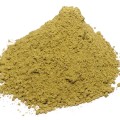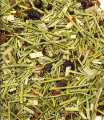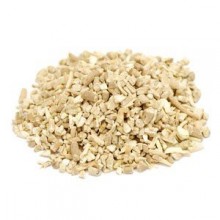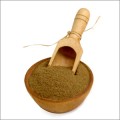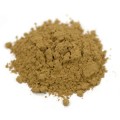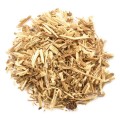 Loading... Please wait...
Loading... Please wait...- Home
- About Us
- Shipping, Returns & FAQ's
- Contact Us
-
For Your Information
- Canadian Customers Have a Choice if Shipping Via UPS
- Aura Cacia Homemade Aromatherapy Recipes
- Bella Nella Altered Art & Paper Crafts Blog
- Forms of Herbal Preparations
- Laundry Tips To Conserve Energy Blog from The Laundress
- The Story of Frontier Natural Products Co-Op
- Sovereign Silver Hydrosol and Aloe Protocol Stops Downward Spiral of Gut Dysbiosis
- Disclaimers
- Recommended Links
- RSS/Recent News
- The Story of Typhoon Housewares
- Reviews/Testimonials
- Raw Ingredients for Mfg
Ashwagandha Root Organic or Conventional Bulk Cut/Powder/Caps/Extract/Oil
Product Description
![]() Provides neuroprotection, anti-cancer effects, enhanced virility, and can even stave off anxiety
Provides neuroprotection, anti-cancer effects, enhanced virility, and can even stave off anxiety
Ashwagandha is used for arthritis, anxiety, trouble sleeping (insomnia), tumors, tuberculosis, asthma, a skin condition marked by white patchiness (leukoderma), bronchitis, backache, fibromyalgia, menstrual problems, hiccups, and chronic liver disease.
Ashwagandha is also used as an “adaptogen” to help the body cope with daily stress, and as a general tonic.
Some people also use ashwagandha for improving thinking ability, decreasing pain and swelling (inflammation), and preventing the effects of aging. It is also used for fertility problems in men and women and also to increase sexual desire.
Ashwagandha is applied to the skin for treating wounds, backache, and one-sided paralysis (hemiplegia).
The name Ashwagandha is from the Sanskrit language and is a combination of the word ashva, meaning horse, and gandha, meaning smell. The root has a strong aroma that is described as “horse-like.”
In Ayurvedic, Indian, and Unani medicine, ashwagandha is described as “Indian ginseng.” Ashwagandha is also used in traditional African medicine for a variety of ailments.
Ashwagandha contains chemicals that might help calm the brain, reduce swelling (inflammation), lower blood pressure, and alter the immune system.
Strengthens immunity
One reason for the reputation of ashwagandha as a general energy-promoting, disease-preventing tonic may be its effect on the immune system. A number of studies have shown significant increases in white blood cell counts and other measures of strengthened immunity in rodents given ashwagandha or certain chemicals extracted from the herb.
Sedative
Ashwagandha may also have a mild sedative effect on the central nervous system and in animal studies it has been shown to be a muscle relaxant.
Increases vitality
It is commonly used to increase vitality, particularly when recovering from chronic illnesses and pain management for arthritic conditions.
Regulates blood sugar
Ashwagandha may also help regulate blood sugar which aids in suppressing sugar cravings.
Cancer treatment and prevention
Research shows ashwagandha may be a promising alternative for cancer treatment and prevention. Ashwagandha seems to show positive effects on the endocrine, cardiac, and central nervous systems. It is one herb that could help your body produce its own thyroid hormones.
Male fertility
Ashwagandha is used to restore male libido, cure impotence and increase male fertility. It is widely used in southern Asia as a male sexuality tonic. Research on ashwagandha has concluded that extracts of the plant has a direct spermatogenic influence on the seminiferous tubules of immature rats presumably by exerting a testosterone-like effect (1). It is could also a potential source of hypoglycemic, diuretic and hypocholesterolemic agents (2).
Reduces stress
Preliminary studies indicate that the herb helps to reduce the negative effects of stress, slow tumour growth, treat anxiety and insomnia.
Ashwagandha is generally safe at the doses recommended on the packaging. In high doses it may have steroidal activity similar to Creatine.
Antioxidant properties
Because ashwagandha has traditionally been used to treat various diseases associated with nerve tissue damage related to the destructive molecules known as free radicals, some researchers have speculated that the herb may have antioxidant properties. Free-radical damage plays a role in normal ageing and in such neurological conditions as epilepsy, Parkinson's disease and Alzheimer's disease.
Precautions
Pregnancy and breast-feeding: Do not use ashwagandha if you are pregnant. It is rated LIKELY UNSAFE during pregnancy. There is some evidence that ashwagandha might cause miscarriages. Not enough is known about the use of ashwagandha during breast-feeding. Stay on the safe side and avoid use.
Diabetes: Ashwagandha might lower blood sugar levels. This could interfere with medications used for diabetes and cause blood sugar levels to go to low. If you have diabetes, monitor your blood sugar closely.
High or low blood pressure: Ashwagandha might decrease blood pressure. This could cause blood pressure to go to low in people with low blood pressure; or interfere with medications used to treat high blood pressure. Ashwagandha should be used cautiously if you have low blood pressure or take medications for your blood pressure.
Stomach ulcers: Ashwagandha can irritate the gastrointestinal (GI) tract. Don’t use ashwagandha if you have a stomach ulcer.
Suggested Dosage
Ashwagandha should be taken with meals. If taken once a day, it should be taken with breakfast. The lowest effective dose for acute usage of ashwagandha, and perhaps the most cost-effective dose, is 300-500mg. The optimal dose is 6,000mg a day usually divided into three doses (2,000mg) and while 300-500mg is effective for most situations a lower dose of 50-100mg can be seen as effective in few instances such as reducing the immunosuppression seen with stress and augmenting anxiolytic (anxiety reducing agents).
Ashwagandha root extract is the preferred form of ashwagandha, for the purposes of supplementation.
Massage Oil: It helps to reduce the generalized pains of body and stiffness of muscles. Regular massage of this oil helps to tone up the skin & strengthen the bones and muscles.
Ingredients: Ashwagandha, Kamla, Malti Pushp, Madhukayasti, Anantmul, Padmakesara, Maida, Punarva, Draksha, Manjishta, Badi Kateli, Choti Elaichi, Elva, Haritaki, Babitaki, Amalaki, Musta, Padmaka, Bala , Dashmool, Jhaoo, Ber, Kulthi, Cow Dhudh, , Kakoli, Sheer Kakokli, Maida, Mahamaida, Jivak, Rishvak, Ridhi, Vridhi, Mugadhparni, Maashparni, Giloi, Kakarasinghi, Banslochan, Padmak, Munnaka, Jivanti, Mulethi, Senda Namak, Raal, Majith, Choti Elaichi, Krishan Sariva, Chirilla, Tej Patta, Shevta Sariva, Bach, Satawar, Asgandh, Soya, Punarva, Base Of Organic Sesame Seed Oil.
Botanical Name: Withania somnifera
aka: Ajagandha, Amangura, Amukkirag, Asan, Asana, Asgand, Asgandh, Asgandha, Ashagandha, Ashvagandha, Ashwaganda, Ashwanga, Asoda, Asundha, Asvagandha, Aswagandha, Avarada, Ayurvedic Ginseng, Cerise d'Hiver, Clustered Wintercherry, Ghoda Asoda, Ginseng Ayurvédique, Ginseng Indien, Hayahvaya, Indian Ginseng, Kanaje Hindi, Kuthmithi, Orovale, Peyette, Physalis somnifera, Samm Al Ferakh, Samm Al Rerakh, Sogade-Beru, Strychnos, Turangi-Ghanda, Vajigandha, Winter Cherry.
Origin: India
Notes: Kosher Certified. Non-irradiated. Non-GMO.
Specifications are subject to change without notice.
* FDA disclaimer
References
webmd
Herb Wisdom
Examine
You Recently Viewed...
Currency Converter
Choose a currency below to display product prices in the selected currency.




